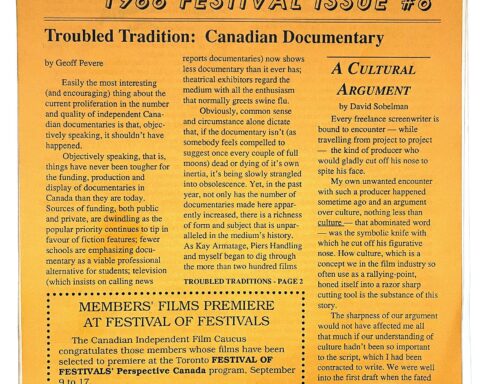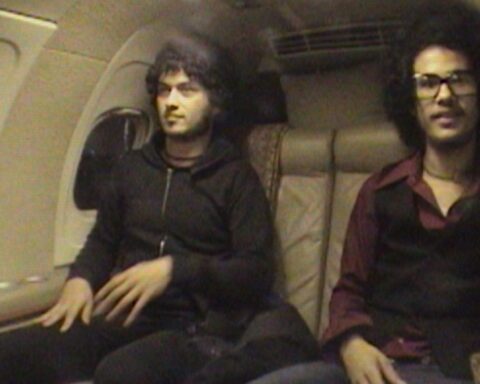Last Men in Aleppo
(Denmark, 104 min.)
Dir. Feras Fayyad
Programme: World Showcase (Canadian Premiere)
Somewhat better than last year’s slick, saccharine Oscar-winner The White Helmets, Last Men in Aleppo treads similar ground but takes advantage of a feature-length format to spread out a bit, mixing the first responders’ heroism with off-duty camaraderie and a bit of revolutionary sentiment, building to a fairly devastating conclusion.
Unfortunately, like the earlier film, Last Men in Aleppo’s single-minded focus on the human scale becomes as much a weakness as a strength. Given the overwhelming complexity of the Syrian Civil War and the multitude of conflicting discourses seeking to define it—all the more charged in the current atmosphere of fake news, a mainstream media denounced by both the left and right, citizen journalism of unclear provenance, ISIS’ beheadings of journalists, and so on—such a restricted focus allows a degree of moral clarity but also, to an extent, abrogates documentary film’s purview of sustained in-depth inquiry.
Whatever its observational merits, though, the film won’t teach you much about the conflict that you don’t know. The singular sense is that the enemies are Assad and Putin; Turkey is referenced only as a potential escape route, ISIS is reduced to a single, neutral mention, while the US, Iran and Saudi Arabia, the other major players in the war, are not mentioned at all.
It’s a point worth dwelling on: my Google auto-complete when I start typing “White Helmets” is “White Helmets Fake,” referring to allegations from self-appointed investigative journalists from GlobalResearch.ca, Alternet and elsewhere—as well as, of course, the Syrian regime and RT (Russian Television)—that, variously, the group has doctored or staged rescue footage, is a fifth column for US interests, or even committed the April 2017 sarin attack that provoked the US’ retaliatory bombing. Snopes.com judges the allegations to be unproven—insinuations based on ideology and not fact—and there is no reason I can see not to take their word for it. At the same time, though, I think that it is the imperative of any serious documentary on the subject to grapple with this discursive landscape by integrating an evidence-based analysis of the forces at play at the level of the international system and the country’s internal dynamics into whatever human-level story it wants to tell.
It seems in bad taste to question the value of a more or less well made (if shakily shot and oddly devoid of women) and emotionally compelling documentary on an important subject. That’s especially so, given that the films seems to be mainly in the right, or at least within the mainstream discourse, but in such a fraught situation, with so much of the tumult in Europe and the US directly traceable to what is being said and done in and about Syria, it seems to me that a documentary about it needs to do more than this one does.











